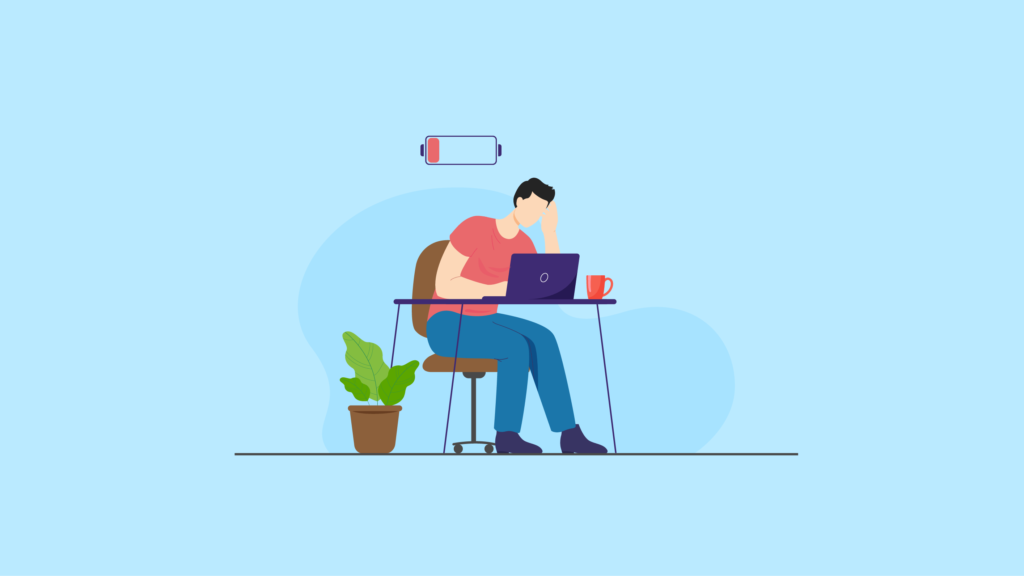
When you work or study for a long time without a break or if you are suffering from any mental conditions, or when you spend most of your day dealing with overwhelming responsibilities that take up most of your mental energy, you may experience mental exhaustion. Mental exhaustion can make you feel physically exhausted too.
Mental exhaustion is different from physical exhaustion. Mental exhaustion refers to thinking, memory, decision making and problem-solving. While emotional exhaustion involves your emotions and feelings. Both mental and emotional exhaustion can make you feel demotivated and detached.
Stress is different from mental exhaustion. You may experience stress from time to time when you face challenging or scary situations. But when you remove the stressor, your hormones should go back to their normal level. Prolonged stress can also lead to mental exhaustion. When the stressor remains for long, your cortisol level may become too-high which can disrupt the physical processes such sleep, digestion or the immune system.
- A few strategies you can use to avoid mental exhaustion are:
- Practice good self care.
- Eat a healthy diet.
- Get sufficient sleep.
- Staying hydrated can help improve your resilience.
- Try mindfulness practices such as yoga and meditation.
- Try changing your medication since a few medicines can make you feel fatigued. Consult your doctor for the best alternative.
- Talk to someone about your stressor and seek appropriate mental health support.
Mental exhaustion can happen to anyone and it cannot be avoided. But you can take a few preemptive steps to lower your chance of getting mentally fatigued. Take occasional breaks from work. If you are studying, take short breaks in between and maybe a day off. This will also help you focus better when you start working again.
